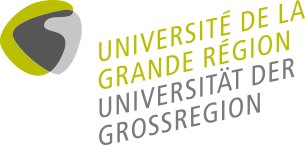Higher Education in Germany
Universities in German higher education
Students at German universities can choose from a wide range of academic disciplines. Research orientation is highly valued, in particular in advanced studies.
Technical colleges and schools, which focus on natural sciences and engineering, also have the status of universities. Pedagogical and theological colleges are equivalent to universities. Germany also has art and music colleges that prepare students for artistic careers.
In addition, students can follow more application-oriented courses at technical universities, as these focus on technical and business issues.
Vocational colleges and schools also offer tertiary qualifications.
Degrees and course structure
In Germany courses are classified as graded (Bachelor and Master) and non-graded courses (Diplom, Magister Artium, first state examination).
After completing a Bachelor course the student can continue with a Master course, whereby Bachelor graduates may also first gain business experience before returning to university.
The scope and length of the Bachelor and Master courses is stated in so-called ECTS points (in line with the European system for accumulating and transferring credits). One semester is worth 30 ECTS points.
Several subjects can be combined in Bachelor and Master courses, in particular for humanities.
As part of the Bologna process, the Diplom and Magister courses are being converted to the Bachelor/Master system. In some German federal states this also applies to teacher training.
Bachelor
The Bachelor is the first qualification for work at the end of a course and is usually awarded in Germany after six semesters (180 ECTS). This gives students above all scientific principles and methodology competence; students are also prepared to start work. The Bachelor is completed with a written dissertation.
The following types are awarded:
- Bachelor of Arts (B.A.)
- Bachelor of Science (B.Sc.)
- Bachelor of Engineering (B.Eng.)
- Bachelor of Laws (LL.B.)
- Bachelor of Fine Arts (B.F.A.)
- Bachelor of Music (B.Mus.)
- Bachelor of Education (B.Ed.), only in some German federal states
Master
The Master is the second qualification and takes at least one year in Germany (60 ECTS). Individual universities can offer Master courses that are more application or research focused. They are completed with a written dissertation and have the following types:
- Master of Arts (M.A.)
- Master of Science (M.Sc.)
- Master of Engineering (M.Eng.)
- Master of Laws (LL.M.)
- Master of Fine Arts (M.F.A.)
- Master of Music (M.Mus.)
- Master of Education (M.Ed.), only in some German federal states
In addition to consecutive Master courses that build on the content of previous Bachelor courses, there are also Master courses that offer additional training and their qualifications may have different names (e.g. MBA). They require a period of work to be completed first.
Ungraded courses: Diplom, Magister, first state examination
The normal study period at universities is eight to ten semesters for most ungraded courses but more than six years for medicine.
Courses in law, medicine, pharmacy and teaching which end in the first state examination, are assigned to this category; as are Diplom courses (in particular for engineering, natural sciences, business and in some cases social sciences) and Magister courses (mainly in humanities, culture and social sciences).
Diplom and Magister courses are, however, giving way to graded courses (see above).
Doctorate
It is possible in principle to obtain a doctorate at all German universities. This requires a Master, Magister, Diplom, first state examination or equivalent international degree. Particularly well-qualified graduates from a Bachelor or Diplom course (at a technical university) may be admitted to doctorate courses in individual cases. Admission is controlled by the universities. It should also be noted that each doctorate project must be accepted by a professor who supports it.
Scale of grades
In general the German scale has five grades:
- "Very good" (1)
- "Good" (2)
- "Satisfactory" (3)
- "Adequate" (4)
- "Not adequate" (5)
The minimum pass level is "Adequate" (4). The grades for doctorates may vary.
The ECTS grade scale is also used in Germany:
- A (the best 10%)
- B (the next 25%)
- C (the next 30 %)
- D (the next 25 %)
- E (the next 10 %)
University admissions
In order to be admitted to a course, applicants from Germany usually need the Abitur qualification, which is awarded after 12 or 13 years at school.
Applicants from other countries must provide evidence of a comparable level of qualification.
Sources: Diploma Supplement on the German tertiary education system and Das Bildungswesen der Bundesrepublik Deutschland 2008, Secretariat of the Permanent Conference of State Culture Ministers


